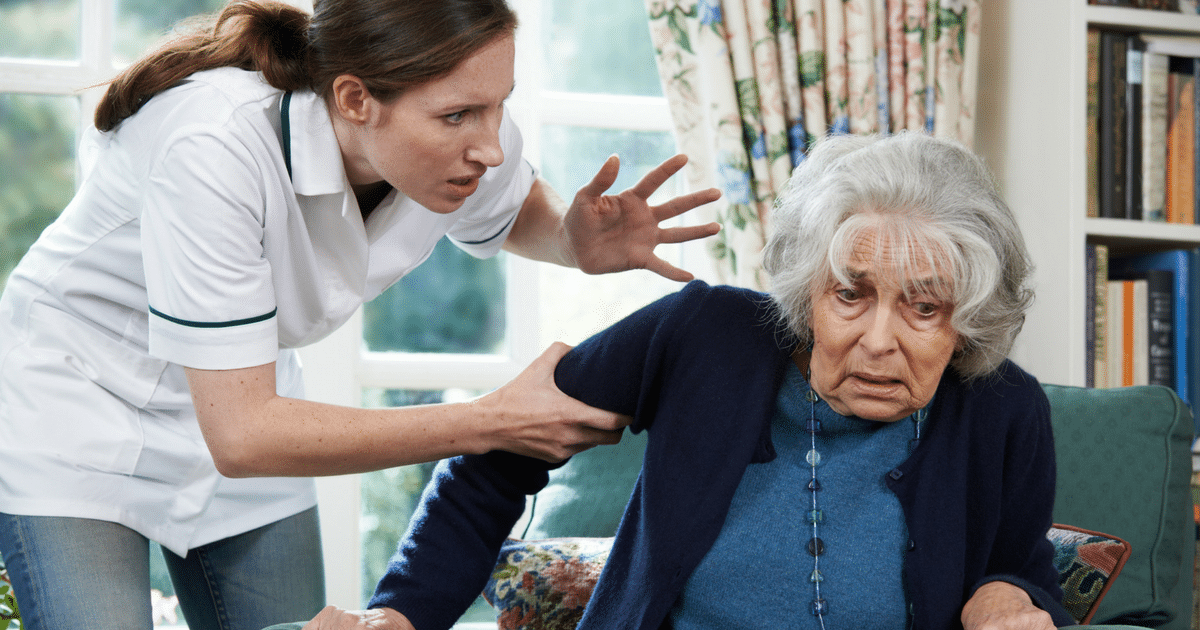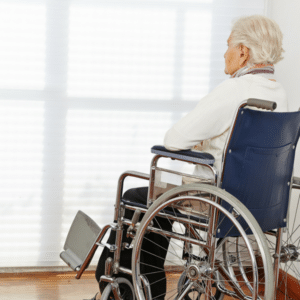Signs of Nursing Home Abuse and What to Do

If you place your elderly loved one in a nursing home, you fully expect them to be taken care of. There is a high level of trust involved. Unfortunately, many times this trust is taken for granted, and elderly nursing home patients suffer mistreatment and abuse; there are actually certain signs of nursing home abuse.
If you think someone you know is being abused at his or her nursing home, don’t wait to take action. You might want to speak to a legal team about your suspicions, or even give your loved one a cell phone from https://www.fanmisenior.com/cell-phones-for-seniors/ so they can call you if they need help. Luckily, there are lots of things you can do if you think your loved one is being abused, such as get in contact with an elder law attorney Denver CO area or similar to help you fight a case of mistreatment. Something that more and more people are doing these days. Keep reading to learn more about signs of nursing home abuse.
Does My Loved One in a Nursing Home Suffer from Abuse?
In fact, various types of nursing home abuse could be occurring to your loved one ranging from emotional to physical. These are some of the signs that someone is experiencing abuse in his or her nursing home.
Physical Abuse
Physical abuse is purposefully implementing physical force onto someone that can subsequently result in bodily injuries, pain and/or impairment. It is easier to pinpoint physical abuse, as one can look for bruises, scratches, marks, bumps, etc. The various ways an elderly person can suffer from physical abuse in a nursing home include, but are not limited to, the following:
- Pushing the patient
- Using items to hit the patient
- Hitting the patient
- Slapping the patient
- Pinching the patient
- Not changing the patient’s undergarments
- Force-feeding the patient
As well as these, it’s crucial to know the signs that your loved one suffers from physical abuse. These signs can include:
- The patient tells you they experience abuse
- Bodily injuries, such as bruises, marks or scratches
- Open wounds or cuts
- The patient asking to spend more time with their family
- Broken personal items, such as glasses or dentures
Emotional Abuse
A nursing home caregiver can also emotionally abuse the patient in a way that inflicts emotional pain or distress on your loved one, whether it is with verbal or nonverbal acts. Some examples of emotional abuse include:
- Yelling or screaming at the patient
- Ignoring or isolating the patient
- Embarrassing the patient
- Insulting the patient
- Bullying or harassing the patient
Make sure to take notes of potential emotional abuse your loved one is experiencing at his or her nursing home. Signs of emotional abuse are:
- The patient is more easily angered
- A sharp change in personality, such as being quieter or isolating themselves
- Behaviors that are regressive, like sucking on his or her thumb, or rocking back and forth
Document the Evidence
Before you reach out to the nursing home administrators about your concerns, make sure you take the necessary measures to document the evidence your loved one is experiencing abuse. Different types of documentation you should be collecting include the following:
- A detailed log with dates and times, descriptions of the abuse, names of perpetrators, witnesses, complaints made, anything you did to stop the abuse in its tracks, as well as the medical care your loved one needed from it
- Photos and/or videos of the abuse, such as marks on their body, soiled clothes or linens and weight loss
- Any written complaints you made to the nursing home
- Witness accounts from anyone who may have seen the abuse, whether it is other workers, guests visiting, or other nursing home residents
- If your loved one received either medical or psychological treatment because of the neglect or abuse received at the nursing home, you need to keep copies of those records, as well as any bills to have proof of the injuries and to receive compensation for medical costs
Why is Documenting Evidence Important?
Documenting the evidence that your loved one potentially experiences abuse at his or her nursing home is critical. You cannot be 100% sure that the nursing home will take the proper steps to meet your concerns if you do not have concrete evidence. Having proof will only strengthen your claims and make you one step closer to saving your loved one.
As well as this, if you decide to pursue a nursing home abuse lawsuit or if you sue a nursing home, you want to make sure you have the evidence readily available in order to be successful. Taking the extra measures to document your loved one’s nursing home abuse makes you one step closer to stopping it.
Seek Legal Help from a Trusted Nursing Home Abuse Lawyer
If you feel a loved one is suffering from nursing home abuse, don’t wait until it is too late to reach out for legal help from an experienced and dedicated nursing home negligence attorney or a nursing home abuse lawyer.
So, it is important you seek out a lawyer who has proven experience in nursing home abuse law. They need to be well-versed with different types of nursing home abuse claims and the essential care any nursing home is required to provide. They must also be able to help you understand the statutes of limitations that tell you the timeframe you have to successfully file a nursing home abuse lawsuit.
Rossetti & DeVoto, P.C. has New Jersey’s premier nursing home abuse lawyers. No matter what, we are ready to help take on whatever case you come to us with. Call us today at (856) 354-0900 for a free, no-obligation consultation.











